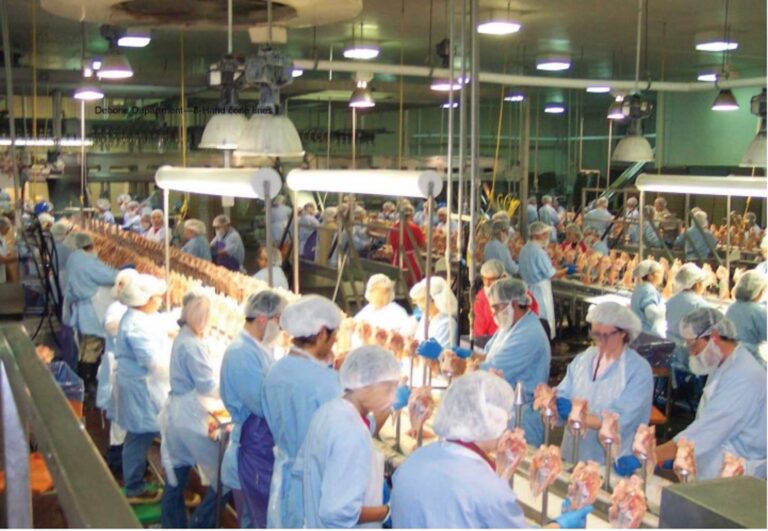Standing shoulder-to-shoulder, working hard in freezing temperatures and shouting over machines contributed to high rates of COVID-19 infections in meatpacking plants, especially early in the pandemic.
The federal agencies tasked with overseeing meat plants and their workers — the U.S. Department of Agriculture and the Department of Labor — have failed to work together to protect workers' health, according to a Government Accountability Office report released Tuesday.
The GAO recommended that the Occupational Safety and Health Administration investigate the risks associated with meat and poultry processing, particularly infectious diseases, and determine what actions are needed to better protect workers.
The GAO is a nonpartisan government agency that provides Congress with reports on government agencies and programs.
More than 86,000 meatpacking workers contracted the coronavirus and 423 died before October 2021, according to Investigate Midwest tracking.
The GAO found that meatpacking plant workers were particularly at risk of contracting the virus. At a large plant in South Dakota, the risk of infection was 70 times greater than the risk in the general population. At another plant in Wisconsin, the incidence rate was 56 times higher than the incidence rate among all working-age adults.
The DOL and USDA have “long-standing challenges” in working together, officials from both agencies told the GAO.
“OSHA and FSIS have not identified an approach to reconcile their different missions to achieve the common goal of protecting meat and poultry workers,” the report states.
Two previous DOL Office of Inspector General reports — one in April 2022 and another in November 2022 — criticized OSHA for failing to protect workers in the meat industry.
FSIS is charged with inspecting the safety of food products, while OSHA's mission is to reduce the risk of injury and illness to workers.
FSIS inspectors work at more than 5,500 meat and poultry plants nationwide, according to the GAO report.
Employers are responsible for following OSHA regulations and ensuring the safety of their workers. Therefore, FSIS was also responsible for the working conditions of its inspectors during the pandemic, even though the inspectors worked at privately owned meat processing plants.
Government emails obtained by Public Citizen in 2021 showed that FSIS and OSHA waited months after the pandemic — after a meat plant had already closed due to the spread of COVID-19 — to work together on a response.
2017 GAO Report detailing the lack of cooperation between agencies. Some of the interagency dysfunction was attributed to the fact that when FSIS inspectors reported health and safety issues at the plants they worked in, OSHA inspected FSIS, not the company that owned the plant.
The GAO recommended in Tuesday's report that both agencies meet regularly to resolve challenges to cooperation.
During the pandemic, OSHA failed to investigate many deaths of meatpacking workers. Some of its investigations into worker deaths were “rapid response” investigations, in which OSHA inspectors did not visit the plant but asked questions by phone, fax or email.

